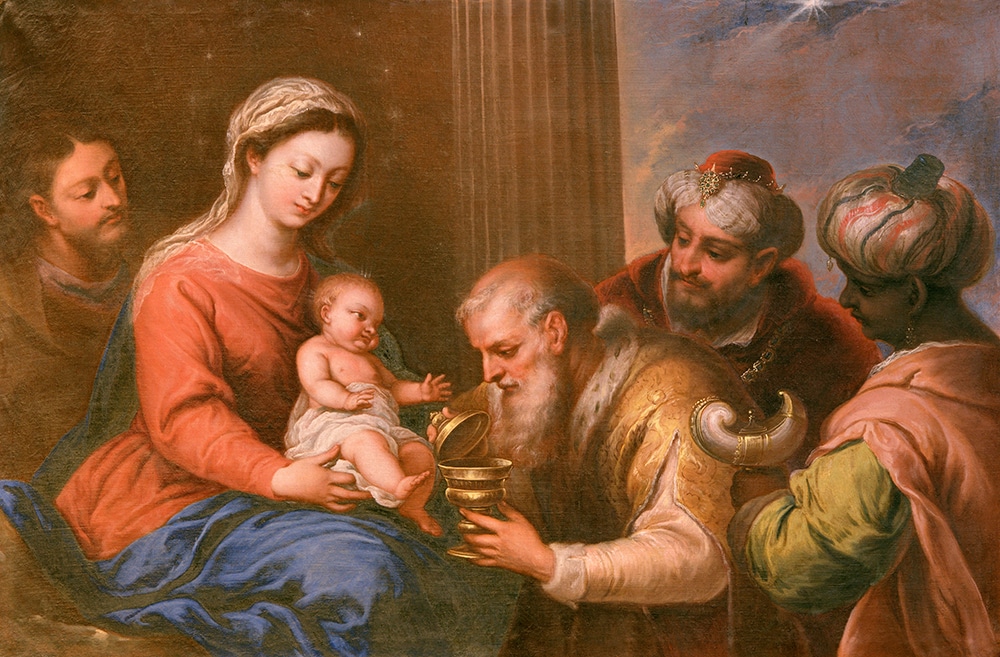
But divine revelation works through the particularity of these words. That is, the Bible is not just a lovely way to initiate men and women into moral principles expressed through stories. The Scriptures, through the very words that are used, enable us to participate in the wondrous works of the triune God.
Pay attention to the first reading on this feast of the Epiphany. We hear in Isaiah, “Rise up in splendor, Jerusalem! Your light has come, the glory of the Lord shines upon you” (Is 60:1).
What does it mean to rise up in splendor? To rise up means to awaken from one’s slumber. In the case of Isaiah, it is the slumber of despair. The kingdom of Judah was forcibly removed from their land, the very Temple where the presence of God dwelt.
| January 3 – The Epiphany of the Lord |
|---|
|
Is 60:1-6
Ps 72:1-2, 7-8, 10-11, 12-13
Eph 3:2-3, 5-6
Mt 2:1-12
|
And now, at last, that presence has returned. Splendor denotes a brilliant luminosity. Splendor means glory!
The source of this splendor is not the kingdom of Judah’s own excellence. Rather, it is the glory of the Lord that is the light that shines into the darkness of their despair. At last, in a world devoid of meaning, there is hope. It is not a self-generated hope, a phantasm of the deluded.
The hope is from the God who is the light of the world.
And he is the light of the world. He is not the light of those who have earned it. He is not the light of a small sect, hidden in a cave. Judah was exiled, Jerusalem was destroyed so that all nations might come to adore this God. That is the glory, that is the light, that is the hope.
On this feast of the Epiphany, this glory shines once more. The Magi, through the wisdom of a star, find their way to a hidden babe. He possesses no power. He shows no glory. And yet, they do homage before the newborn King of Kings, the Lord of Lords.
The nations have come to Jesus Christ, dear friends. The glory of God has shone.
And that is what we remember on this feast. Christmas is not the feast of the privileged few who are sanctified. Christmas is the event that opens a new horizon. The glory of the Lord is meant for every man and woman.
And that glory, dear brothers and sisters, it shines. It shines more than any convoluted light source that we could construct.
It is the glory that shines upon the face of the man or woman dying in the COVID ward this Christmas, all alone.
It is the glory that gives hope to the young man or woman, trying to figure out the meaning of their lives.
It is the glory of the Catholic who darkens the door of the Church but once a year, on that feast, on Christmas.
God is light, the light of the nations, the light that shines even now. This no mere metaphor, no pious hope.
The darkness of death, of despair, of hopelessness, will be illuminated and glorified through the light of the Word made flesh.
God dwells among us. Not apart from the suffering of this world. Right here, right now.
The words of the Scriptures open to us a horizon, a vista of hope that changes everything.
What left is for us to do homage, to bend the knee before Jesus, the one whom all nations come to adore.
Timothy P. O’Malley, Ph.D., is the director of education at the McGrath Institute for Church Life at the University of Notre Dame.





